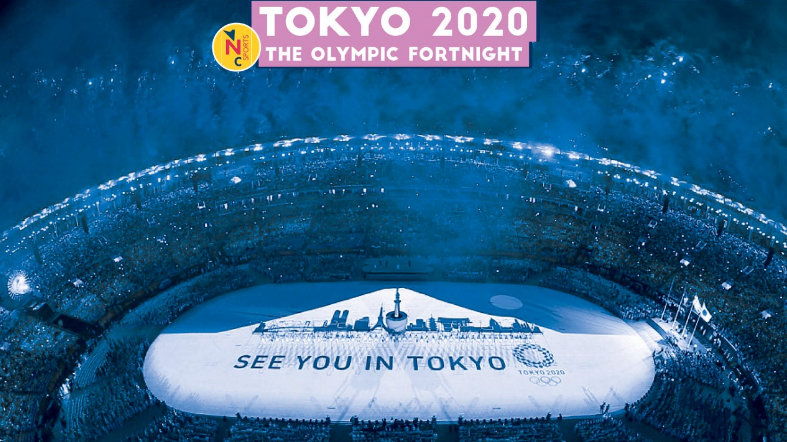Tokyo 2020: The Games That Begin Today, Next Year

Beyond the economic catastrophe for Japan and global sports lies the more significant fact that a cancelled Tokyo Olympics is also indicative that the world is in a bad spot in history. This time it is not a war between nations but against a virus.
Do you believe in the multiverse? The theories that suggest different versions of history being played out across parallel worlds with our roles in them ranging from important to insignificant to even non existent. If that is true, then I wonder in which of those parallel universes the 2020 Tokyo Olympic Games have begun where I am commuting across venues in Japan’s capital city, guided by schedules, breathing in the famous Japanese order amidst raging multisport chaos. The countries, ethnicities, athletes, celebration, the materialism in the glamour of sport and the spiritualism in the pursuit of perfection have already made it a boiling, heady cauldron on Day 1, July 24, 2020. One senses the rush. One feels them slowing down as well. One gathers the scents of the spirit of triumph of men and women, and captures the sights of human enterprise. One could….
A mail from the Indian Olympic Association (IOA) snaps me out of the immersion in parallel grandeur. To set things rolling, I must confess that I disagree with the theory of the multiverse. So our reality, though tending towards dystopia as we speak, is all we have. In this universe, the IOA wants Newsclick to confirm its intent to participate as a media contingent in the rescheduled Tokyo Games, set to be held a year later, if circumstances permit.
Over the next fortnight Newsclick will publish a series of articles and videos that document Olympic history, talk about the movement’s present and comment on its future | Click for Stories/Videos
While completing the Email correspondence to reiterate a commitment to cover the Games, one could not help but smirk at what happens to be nothing but a strange formality. Especially considering the fact that we will never be far from the action anyway. We have grown used to the new normal which brings sport, life, weddings, classrooms and office meetings onto our screen. It has already taken sports journalism to video chat apps and social media.
The upcoming fortnight would have been a celebration of sporting excellence and beyond in Tokyo. It will have to wait, and when it happens, hopefully next year, we will be ready to adhere to whatever normals the next 365 days heralds. Also, it would symbolically commemorate the victory of humankind over the coronavirus that has ravaged the world.
Of course, the ifs and whens, the talks of possible cancellation of the Games altogether, are all hypotheses, not very different from the theory of multiverse. At this point, under the current set of variables the world faces, it is impossible to hold the Games. The Tokyo Olympics stakeholders nod in unison. “Whether the Olympics can be done or not is about whether humanity can beat the coronavirus,” said Tokyo Organising Committee president Yoshiro Mori in an interview with Japanese broadcaster NHK on July 22, a day before the city held a subdued One Year to Go ceremony for the second time. “Specifically, to develop a vaccine or drug is the first point.”
There you go. It is a victory that the world seeks together as one, a triumph in a race against an unseen adversary, sticking to an undefined timeframe. Under these circumstances, we talk about July 23, 2021, the day the Games will open next year, and we see nothing. But we see hope too.
Also Read | Marcelo Bielsa: Genius That’s Hard to Miss, Harder to Notice, Impossible to Fathom
In many ways, the Olympic Games have always been about hope, and, financial ramifications apart, this is the main reason why the world has been harping on about an event which, on a peripheral plane, is nothing but an event which brings together alpha human specimens who display physical prowess far from the grasp and reach of 99 percent of the world. An event which presents a reality that’s so far out of reach for many that it is not even an aspiration. This includes many athletes too by the way, who end up becoming Olympians, winning their own personal races, but getting outclassed in the process as well.
The Olympics now represent elitism. The modern Olympic movement, when it began in the last decade of the 19th century, was anything but elitism. The idea was integration and inclusion. The Olympic movement, arguably, showed the world what world unity was, much before the world, and its superpowers, were ready for it.
While unity of the current world is debatable, global organisations that have come into existence through the course of the 20th century, have tried their best to figure out ways to ensure things did not escalate into a scenario where conflicts consume everyday life across the globe. Of course, where we stand now, two decades into the 21st century, conflicts are what we see when we look around, some to right the wrongs, some to further wrong the wrongs.
Then we also witness the Olympic Games, once in four years.
The Olympic movement achieved a unified sense of purpose much earlier into its existence but not without effort and turmoils of its own. It began by working towards an utopia. While its own evolution — the International Olympic Council and its model of organised big sport and related businesses — ensured the utopia remained confined to the plaque that lists the founding principles of the movement and nothing more, the quadrennial games, its winter sibling, and the Paralympics represent an alternative to what is at best a failing model of geopolitics and global diplomacy.
Also Read | India’s National Dope Testing Laboratory's Suspension Extended For Another Six Months
No surprise the biggest threats to the continuum that the Olympic Games illustrates and represents has come when the whole world was engulfed in conflict. The two times the Games have been cancelled were during the two World Wars. The 1916 edition was casualty of the first one and the 1940 (incidentally Tokyo was the host city) and ’44 due to World War II.
That takes the implications of the postponement and possible cancellation of the Tokyo Olympics beyond the realms of losses suffered by the athletes who miss out, and the economics that bears it. The financial catastrophe if the Games do not take place at all would be huge, no doubt. It will have a cascading effect not just on the Japanese economy or on the fortunes of the sponsoring firms in the mix. It will also cast a long shadow on the sporting future of the world. The revenue model of the Games is such that the International Olympic Committee (IOC) gets a fair share from it for its coffers. The IOC, in its turn, uses it for running various programmes, including funding sporting activities across the world. That money is important, especially for the less privileged budding athletes in the poorer countries of the world. A cancelled Games disrupts a global and decently well-oiled system. Even a system with its own faults.
But beyond this catastrophe, lies the more significant fact that a cancelled Games is also indicative that the world is in a bad spot in history. This time it is not a war between nations but against an invisible enemy. A virus. While parallely, and no, not in a parallel universe but very much in ours, we have a rise in right wing and fascist politics, much like the time when the Games were cancelled in the 20th century. We also have extremely incapable leaders at the helm of big nations, creating further turmoil rather than presenting a united front in dealing with a global crisis. Amidst all this, inequality — racial and class discrimination — has reared its ugly head, triggering a global movement as well.
The world is indeed in a churn and while the Olympic Games itself might sound like a small chip in the larger puzzle we as humans have to solve in the immediate future to find a way ahead. However, it will also prove to be an important landmark through which lessons will be reiterated in the future.
Also Read | The Selling of a Car and the Irrationality of Those Who Criticise It
It starts with the simplicity that sport represents, much before glitz, glamour and money engulfed it. And the Olympic Games, despite its grandeur, still represent that idea, though in a very miniscule form factor. Maybe this pandemic could help the movement regain some of those founding spirits.
For when we play, we unite. When we play, we persevere. When we play, we progress, remain healthy as a society and as a race. When the flame lights up at the Olympic Stadium, in Tokyo next year one hopes, its light and spirit will reach across the world — through television, computer or mobile screens. It would, obviously, symbolise, like Mori suggested, a victory. It would also signify something larger than the mere running of races or subduing of opponents, including a virus. It would represent what could be later hailed as a significant course correction in history, one that perhaps saved this small parallel universe of ours.
Notes:
The theory of the multiverse is intriguing.
Email to the IOA, check!
Piece to start Newsclick’s 14-day special coverage of the Olympics, check!
Time now to head back to the 2020 Tokyo Games.
Now, where were we….
Get the latest reports & analysis with people's perspective on Protests, movements & deep analytical videos, discussions of the current affairs in your Telegram app. Subscribe to NewsClick's Telegram channel & get Real-Time updates on stories, as they get published on our website.
























